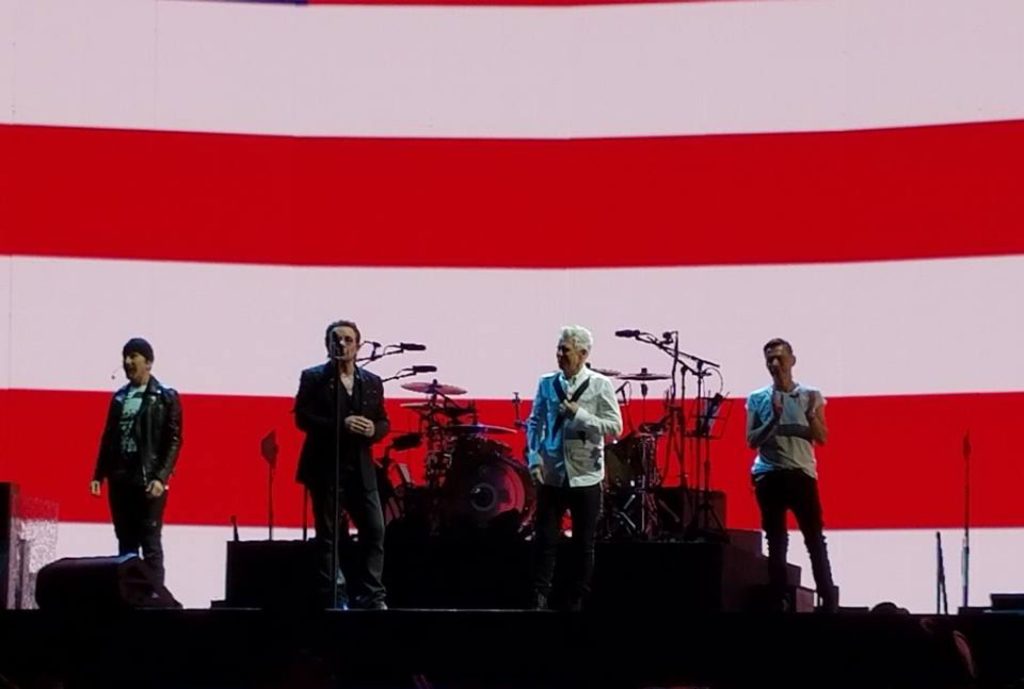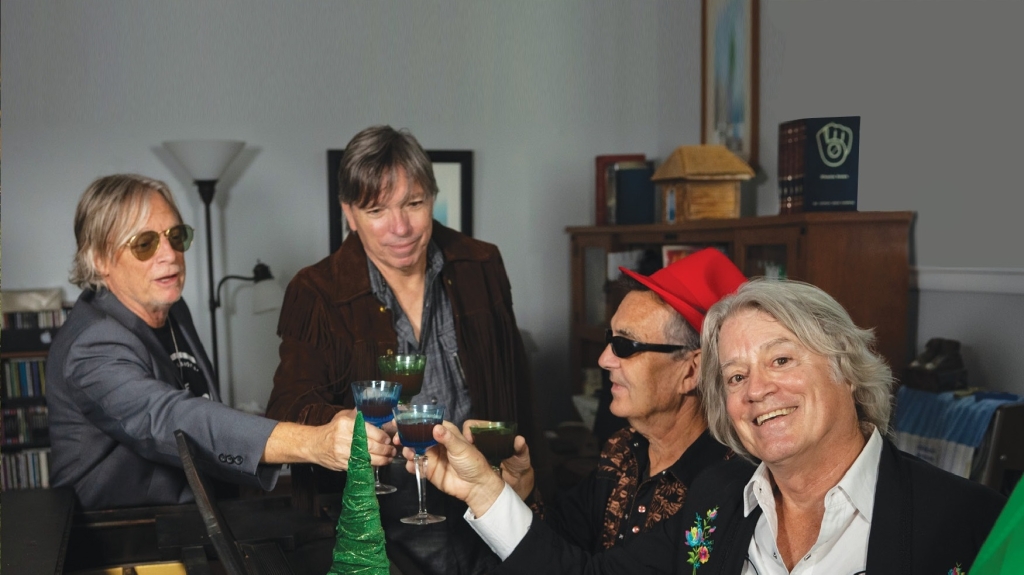
COVID-19 has made it so that most of us in the United States are unlikely to be under a Mediterranean sky anytime soon, but guitarist/songwriter Steve Hackett has crafted a resplendent, mood-driven collection of acoustic travel tunes aimed at holding us over until we get there. All 11 tracks are inspired by Hackett’s extensive journey through the region and comprise his first acoustic album since 2008’s “Tribute.”
He was kind enough to grant me 30 minutes of his time this week to discuss the album and how he hopes that it can bring light to people during one of the most difficult years in modern history. Whether you sit down to absorb its majesty with friends or alone with a glass of wine, it promises to be one of the most exciting listens of the new year.
MNOD: The pandemic has essentially loomed over every interview I’ve done this year, so I’d be remiss not to address it once again. How have you been holding up thus far?
Hackett: I’ve been staying well. It’s been a very productive time, actually, because I’ve substituted playing live for making an album and releasing other projects. I put out the “Selling England By the Pound” and “Spectral Mornings” live DVD from Hammersmith back in September and I also had my autobiography published in July, which was a very rewarding process. I’m very proud of the new record and I can’t wait for everyone to hear it.
MNOD: How comfortable are you with touring again in 2021 if things play out that way?
Hackett: We’re scheduled to get back out there in April, so hopefully we can still do that. Vaccines are going to play a big role in whether or not we’re open for business again, but we want to play as soon as we can. It’s been frustrating, but safety is most important. Not only for me, but for my team and the audience. The virus is no joke. We’ve been in lockdown in the UK for a while and infections are going up. Christmas is coming and people will want to gather, but hopefully it gets under control soon. That’s what I love about art and music, though. They’re not dependent on external factors. I was able to finish the album and other projects without depending too much on what was going on in the outside world.
MNOD: Your new record, “Under a Mediterranean Sky,” is an acoustic collection that also has an orchestral vibe to it. Was this something that came to you while in lockdown or had you already been working on it?
Hackett: As I said, I’m very proud of this record. It’s acoustic, it’s orchestral, and each track describes a particular place that I’ve traveled to in the Mediterranean. It was a labor of love, really. There’s nylon classical guitar as well as world music influences. My record company came to me and said that they were prepared to release whatever I wanted to do, so I decided to do this. We were halfway through the US tour when everything stopped and thankfully we were able to catch the last flight out of Philadelphia before the lockdown began. I love this record. I listen to it every day, which is rare for me. I usually don’t listen to my own records that often, but I’m particularly proud of the playing and production on this one.
MNOD: What drew you to the classical guitar style?
Hackett: Nylon strings give you a wider range of sounds than steel. They’re adaptable and have very wide dynamics. It can be a challenge to play them at times, because they require you to be precise and really have a love affair with the classical style. You have to be inspired or else you won’t get out of them what you want. Electric playing is very heroic, but I’ve always found the classical style to be very magical. I’m amazed by what I can get from one instrument. I find the nylon strings to be limitless. I haven’t given up the electric playing, I just see classical playing as the other side of the coin. It’s concurrently harder and more rewarding.
MNOD: Because every track on this record was inspired by a specific area within the Mediterranean, I was wondering what you learned about each location and its relationship to music during your travels.
Hackett: I was very affected by the music from each of these areas. What I wanted to do was paint a picture with music. My father was an artist and one area that he excelled in was landscapes, so I think I’ve created the musical equivalent of that. Each region has its own personality and I tried to evoke that for the listener. The music in Spain is different from Greece while the music in France is different from Egypt. All of that diversity is embraced here. It’s a very pancultural record. There’s a song called “Andalusian Heart,” which celebrates the flamenco guitarists of the Andalucia region. “Joie de Vivre” embodies the sense of joy that the French people derive from their wine and folk music. There’s a song called “The Dervish and Djin” that features musicians from Azerbaijian and Armenia, which is really a beautiful thing when you consider that these two countries are at war with one another. It’s something that music can do that politics can’t. Music unites. I’ve actually witnessed the whirling dervishes that sprung from Persia’s past first-hand and they’re miraculous. Egypt has always been a source of inspiration, as well, so there are really infinite perspectives on this album that transport the listener to places that they can’t otherwise travel to at the moment.
MNOD: Your 2021 tour promises to recreate the classic 1977 live album, “Seconds Out,” which happens to be the first Genesis album I ever owned. What do you think it is about that album that captured the band so well?
Hackett: That was an album that essentially cherry picked our best songs. We drew from Foxtrot, Nursery Cryme, The Lamb Lies Down on Broadway, A Trick of the Tail, and others. It was a double album, so I didn’t want to take it out on the road unless I could give the fans full-length versions of the songs. A song like “The Musical Box” has sections that could work on their own, but it’s really meant to be experienced as a whole. People like that album, because it’s a live compilation of our best songs.
MNOD: Your 1981 album, “Cured,” is one that I’ve gotten into recently and I read that it was the first album in which you ever handled the vocals entirely on your own. Was that an easy role to slide into?
Hackett: That album was definitely more of a pop record than rock, so I was experimenting as a singer. There are one or two things on there that I still perform live occasionally such as “The Air-Conditioned Nightmare,” which is one of the heavier tracks from that record. As a guitarist, it’s exciting to get reviewed as a singer, because it’s different. When you’ve worked with singers like Peter Gabriel, Phil Collins, and Richie Havens, you learn a lot about vibrato and the value of holding notes at the right time. I’ve gotten more confident as I’ve gone on from that record and gained more control of my voice. I’ve also tried to establish both a ballad voice and a rock voice while getting more emotional every time I sing.
MNOD: Your autobiography, “A Genesis In My Bed, ” was released over the summer. Why did now feel like the right time to put your story out there?
Hackett: I’d been writing my story for 15 years or so, but not in an official context. My publisher gave me a deadline and deadlines can be a very motivating thing, so obviously I had more time to write once the shutdown became official. There were certain stories that I was able to flesh out further and really give the readers an engaging narrative. Looking back on it, it was a maddening process at times, because there are certain ideas that come to you in the shower, but you never have a waterproof pen handy to write them down. So I had to remember things and then make sure I got them down correctly later on. Not only did I want to tell my story, I also wanted to tell it in a way that was engaging for people. Drawing people in is important, so I wanted to be as descriptive as possible. I really wanted to capture for the reader what it felt like to grow up in Pimlico during the 1950s. London was smelly, polluted, foggy, and really in a bad state after World War II. I remember seeing bomb damage regularly, so I wanted to describe to people just how different it was back then. When I think back on that time, it’s almost like Dickens, because London from then to now is as different as it was 100 years ago. I had to open up to people and it ended up being a very cathartic experience.
“Under a Mediterranean Sky” is available on Jan. 22, 2021.
See www.hackettsongs.com for details.






Leave a comment